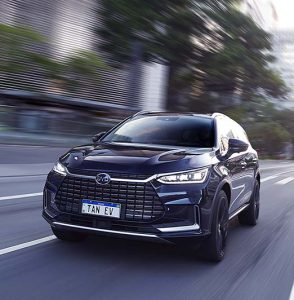In recent years, Brazil has emerged as a powerhouse in Latin America’s electric vehicle (EV) revolution. With significant investments in infrastructure and a growing market for EVs, Brazil is setting a precedent for sustainable mobility in the region. In 2022 alone, the country saw a 30% increase in EV sales, according to Reuters Mobility, positioning itself as a leader in this green transition. In this article, we will explore how Brazil is spearheading this movement, examine the challenges it faces, and provide insights into how it can maintain its momentum in the EV sector.
The Rise of Electric Vehicles in Brazil
Government Initiatives and Policy Support
Brazil’s government has been instrumental in promoting the adoption of electric vehicles through a series of supportive policies and initiatives. These include:
- Tax Incentives: Reduced import duties for electric vehicles and tax exemptions for manufacturers are boosting the EV market.
- Subsidies for Infrastructure Development: Financial support for the installation of charging stations across the country, focusing on urban areas and major highways.
- Regulations Favoring EV Adoption: Policies that encourage public and private sectors to integrate EVs into their fleets.
In addition to these measures, Brazil is part of the Global EV Alliance, which aims to accelerate the transition to electric mobility worldwide, highlighting the country’s commitment to sustainable transportation.
Growth in EV Manufacturing
Brazil is not just importing electric vehicles; it is also becoming a hub for EV manufacturing. Several global auto giants, including Volkswagen and Nissan, have set up production facilities in the country. These facilities are not only producing vehicles for the domestic market but also for export to neighboring countries.
- Volkswagen: With its new ID.4 model, Volkswagen is investing heavily in Brazilian manufacturing plants, focusing on both electric and hybrid models.
- Nissan Leaf: As one of the best-selling EVs globally, the Nissan Leaf is now being produced locally, which reduces costs and makes it more accessible to Brazilian consumers.
This surge in local manufacturing is a testament to Brazil’s growing importance in the global EV supply chain.
Challenges and Opportunities in the Brazilian EV Market
Overcoming Infrastructure Barriers
Despite these advances, Brazil faces several challenges in its EV journey:
- Charging Infrastructure: While the number of charging stations is increasing, there is still a need for a more widespread and reliable network, especially in rural areas.
- Energy Supply: Brazil’s reliance on hydropower means that during dry seasons, energy availability can affect the reliability of EV charging.
To overcome these barriers, partnerships between the government and private sector are crucial. For example, companies like BYD are collaborating with local firms to expand the charging infrastructure network.
Consumer Adoption and Market Growth
Consumer attitudes towards electric vehicles are shifting, with more Brazilians considering EVs as a viable alternative to traditional cars. Key factors driving this change include:
- Cost of Ownership: Lower maintenance and fuel costs make EVs an attractive option for consumers in the long run.
- Environmental Awareness: Increased awareness of climate change and pollution is driving demand for cleaner transportation options.
- Innovative Financing Options: Banks and financial institutions are offering favorable loan terms and leasing options for EV buyers.
These factors, combined with government incentives, are expected to drive a 25% annual growth in the Brazilian EV market over the next five years, according to Bloomberg Green.
Practical Tips for Brazilian EV Buyers
How to Charge Your EV
Charging an electric vehicle in Brazil is becoming increasingly straightforward, thanks to the expanding network of charging stations. Here are some tips for new EV owners:
- Install a Home Charger: Many EV manufacturers offer home charging solutions, which can be more convenient and cost-effective.
- Use Public Charging Stations: Apps like PlugShare and ChargePoint can help locate nearby charging stations.
- Plan Long Trips: For extended journeys, plan your route to include available charging stations to avoid range anxiety.
Where to Buy Electric Vehicles in Brazil
If you’re considering purchasing an EV, here are some of the best places to start:
- Authorized Dealerships: Brands like Tesla and Hyundai have authorized dealerships in major Brazilian cities.
- Online Marketplaces: Websites such as OLX and Mercado Libre offer both new and used electric vehicles.
- Auto Shows and Expos: Events like the São Paulo Auto Show provide opportunities to explore the latest EV models and innovations.
Conclusion: Brazil’s Bright Future in the EV Landscape
In conclusion, Brazil’s proactive approach to electric vehicle adoption is setting a benchmark for Latin America. With strong governmental support, growing local manufacturing, and increasing consumer interest, Brazil is well-positioned to lead the region in sustainable mobility. However, the country must continue to address infrastructure challenges and ensure the reliability of its energy supply to maintain this momentum.
As we look to the future, Brazil’s role in the global EV market is poised to expand, offering exciting opportunities for innovation and growth. Are you ready to join the electric revolution? Share your thoughts or experiences with us in the comments below, and stay tuned for more insights into the evolving world of electric vehicles.

